As the new year gets underway, the MSC Centre for the Poor, located in the city of Butuan in the Philippine Province of the Missionaries of the Sacred Heart, continues in its efforts to promote sustainability and self-sufficiency in harmony and balance with the natural world. One of their most recent projects is the School of Love, a farm school dedicated to protecting and conserving the environment with “tender love and care,” while also encouraging positive growth in those who tend to the earth and reap the benefits of its resources.
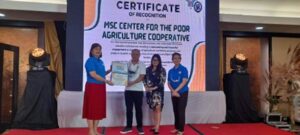
Established in 2018, the MSC Centre for the Poor has since developed an agricultural cooperative movement for local farmers, with a view to improving quality of life for the poor and marginalised in society, and those who don’t have a voice of their own. The community there describe the MSC Centre for the Poor Agriculture Cooperative (MSC-CEPAGCO) as a “working arm of the Missionaries of the Sacred Heart, responding to the difficulties during the COVID-19 pandemic and beyond, by organising the farmers’ sector to ensure food sustainability and care for our common home.”

As part of their ongoing development programmes, the MSC-CEPAGCO is working on building a “learning site” – a model farm covering 4.3 hectares where farmers and community members can learn and practice basic principles and skills in the field of organic agriculture. The model farm has now been approved by the Department of Agriculture as a Learning Site for Sustainable Organic Agriculture, and a Farm School of Technical Education Skills Development Authority, aiming to empower locals through the promotion of an alternative, sustainable lifestyle.
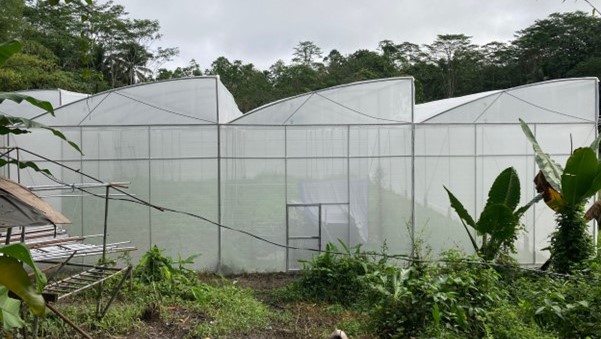
The current goals of the cooperative focus on the promotion of healthy soil and organic produce, the use of ecologically balanced and safe farming technology, consciousness of managing waste with the ultimate aim of a zero-waste lifestyle, the creation of income-generating projects to raise the quality of life of poor families and communities in rural areas, and raising awareness of the necessity of caring for our environment in response to the ongoing climate emergency.
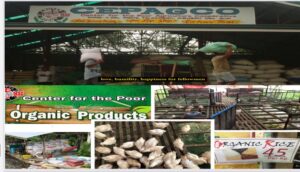
“Seeing ourselves within the web of life”
The project promotes a “holistic world view perspective” of “seeing ourselves within the web of life” – essentially, becoming aware that everything we do in life “causes a ripple of impacts, big or small, good or bad, to travel throughout the web and ultimately back to us.” This drives the desire to make a positive difference, alongside the awareness of a “high level of mutualism,” seeking to enable a better quality of life for each other as much as for one individual, “working together for the betterment of all.” With a consciousness of the damage that has already been done to local ecosystems, the School of Love is working on allowing the environment to regenerate. “From the tiniest seeds to a grown tree, from fertilization of eggs to completely matured animals, from planting to nurturing, growing and harvesting, all these processes are realised because of tender love and care, whether by nature or by a responsible steward,” states a recent report from the MSC-CEPAGCO.
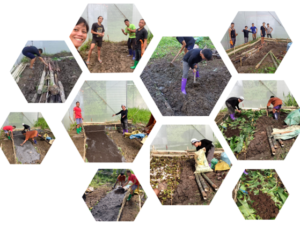
Involvement in the scheme is far-reaching, including members from the professional, religious, and agricultural sectors of the local community, in addition to providing opportunities people undergoing rehabilitation from drug and alcohol abuse, young people who are out of school and lacking the necessary skills or prospects for progression, repatriated Filipinos from overseas, the indigenous Lumad community, and single parents who are struggling to raise a family on their own. To date, more than 100 participants have completed the training programme, going on to find employment in farming and market gardens, running community gardens, school programmes, and international development and food security projects. “One of the most important outcomes of the apprenticeship is the ripple effect our graduates have working locally, nationally, and internationally to promote, practice, and teach sustainable, organic farming and gardening,” reports the cooperative programme.
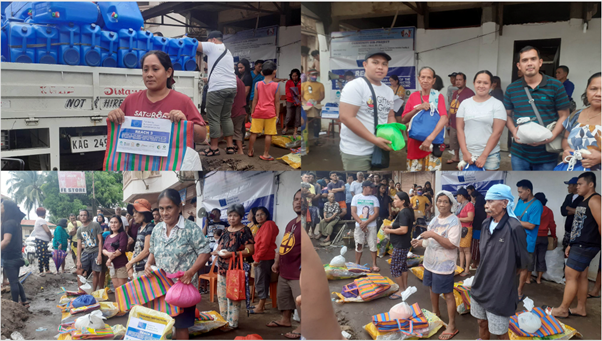
A sustainability expert who recently reviewed the programme writes of their experience in a report for the MSC-CEPAGCO: “I felt at home for the duration of my stay; all the people are so accommodating and warm. They include in their daily activities the morning and evening prayer, also yoga and meditation. We cooked and ate together (I introduced the practice of giving gratitude while we are circling the table), socialising on some nights, gardening together, and helping with livestock. We were able to unwind and rejuvenate as we visited a hot spring resort. The Christmas party was a joyous celebration, exchanging gifts, playing games, rendering karaoke songs hits, and dancing until past midnight. Every Sunday, [participants] have Mass with their missionary priest, then a big breakfast after the Mass where the stakeholders bring a potluck. [Each participant] must have a once-a-week value formation workshop with the stakeholders who are regular employees.”
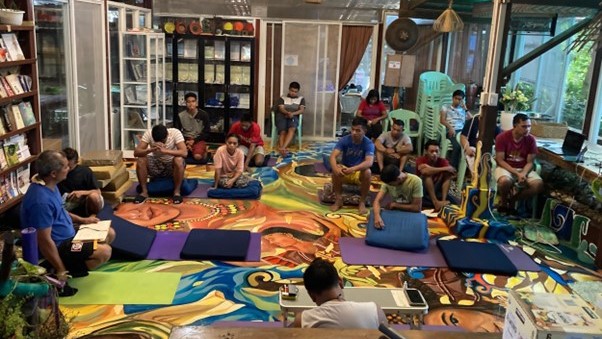
Now in its second year, the agriculture cooperative continues to promote and develop an ethos of sharing, of zero waste, and a simple lifestyle based on having enough. As part of the programme, rainwater is collected and purified for use as drinking water, with the treatment of waste water and sewage the next project on the horizon. Unreliable weather conditions present their own difficulties, with issues such as storms and typhoons causing real challenges, especially when the MSC Centre for the Poor also act as first responders in these circumstances, bringing urgent relief aid to survivors of such natural disasters. In these cases, the community at the Centre for the Poor have also installed their water purifiers for regions where people have no source of safe drinking water as a result of storm damage.
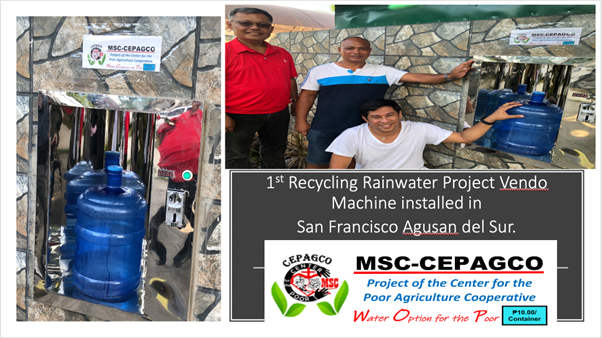
From food foraging to composting, the different techniques employed on the programme are many and varied, and are constantly developing for the better in the quest to provide a positive, practical space in which people can grow and learn as they reap the benefits of nurturing the earth and our common home.
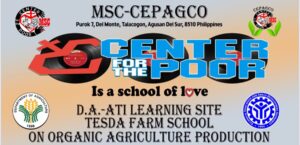
Images and quotes from the MSC-CEPAGCO Sustainability Report (January 2023),
courtesy of Fr Richie Gomez MSC.
IF YOU CAN, PLEASE SUPPORT OUR SACRED HEART FAMILY
IN THE PHILIPPINES